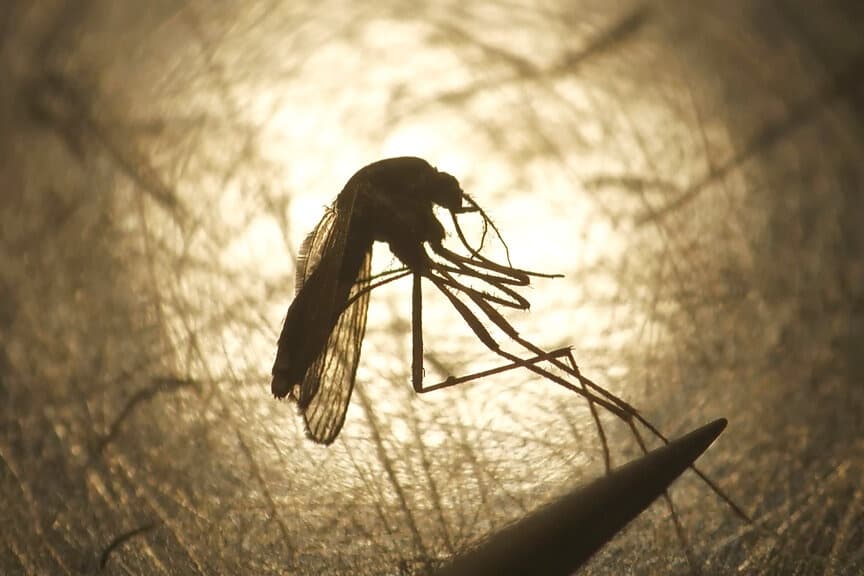
Colorado recorded its first human death of the year from West Nile virus on Friday.
The case was in an adult from Lafayette. That's according to the state health department and Boulder County Public Health, in a press release.
State health officials with the Colorado Department of Public Health and Environment said they're “seeing concerning trends” with the virus. They've confirmed nine human cases of West Nile Virus in residents of eight counties this year. It's also been found in mosquitoes in eight of the 16 counties that have tested the insects this season. That includes Adams, Arapahoe, Boulder, Broomfield, Denver, Jefferson, Larimer, and Weld counties.
“This tragic loss underscores the serious nature of this virus and why personal prevention is so vital,” said Dr. Ned Calonge, chief medical officer at CDPHE, in the release. “I cannot stress enough the importance of taking simple, effective steps — like using repellent and draining standing water — to protect yourself and your loved ones from West Nile Virus infections.”
Other protective steps include limiting time outside at dawn and dusk, when the bugs are most active; wearing long sleeves, pants and socks in areas with mosquito activity and applying repellent to your clothes and installing or repairing window and door screens.
Last year, no one died from the virus in Colorado. But 51 died from it in 2023, a year when 386 people in the state were hospitalized and 634 human cases were recorded.
In 2024, 164 people died from the virus in the U.S., according to the Centers for Disease Control and Prevention. There were 1,791 cases. That compares to 62 human cases and 7 deaths in 1999, which shows how much more widespread the virus has become.
Over the last quarter century, the nation has recorded nearly 61,000 West Nile Virus cases and more than 3,100 deaths.
Underscoring the ramping up of West Nile Virus season in Colorado, health officials in Pueblo and Weld Counties on Friday reported their first human cases of the virus this year.
“It is very important for every individual to take precautions to avoid mosquitoes that spread West Nile Virus illness,” said Alicia Solis, program manager at the Pueblo Department of Public Health and Environment. “West Nile Virus can be very serious, and in this case, has led to a hospitalization.”
Last year, 15 cases were investigated in Weld County.
West Nile Virus is most commonly spread to people by the bite of an infected mosquito.
Symptoms of the virus can appear three to 14 days after infection, according to health officials. Most infected people do not show any symptoms. Initial signs can include fever, headache, nausea and vomiting, muscle aches and weakness, and rash.
Anyone who develops symptoms should immediately see a health care professional. There are no medications to treat or vaccines to prevent West Nile infection. Fewer than one percent of infected people develop a serious, sometimes fatal, neuroinvasive illness. People aged 60 years and older and those with certain medical conditions, like a weakened immune system, are at greater risk of serious illness. Others considered at greater risk include: those with pre-existing conditions like cancer, diabetes, hypertension, kidney disease, and organ transplant recipients.
Weekly data updates and additional information, including historical trends, are available on the CDPHE West Nile Virus webpage.







